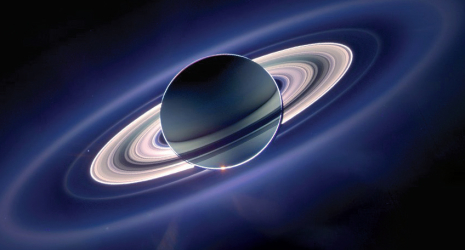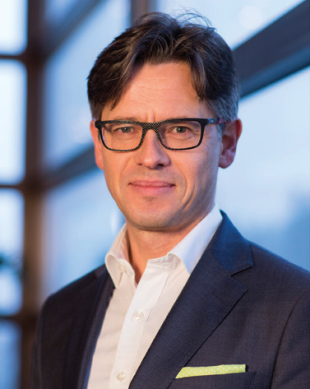
The Cassini/Huygens Spacecraft Mission to Saturn and its moons
The Birkeland Lecture is above all an endeavor to honor the great Norwegian scientist and entrepreneur Kristian Birkeland. However, it has also given the organizers an opportunity to invite to Oslo many outstanding scientists within the field of geophysical and space research, areas which were central in Kristian Birkeland’s own research.
More About The Birkeland Lectures (English)
More About The Birkeland Lectures(Norwegian)
Watch the lecture here:
Program
- Introductory lecture by Bernt Skeie, Chief Executive Officer, CMR Prototech: Clean Power from Space to the Ocean Space
- Yara’s Birkeland Prize in Physics and Chemistry
- The Birkeland Lecture by Professor Michele K. Dougherty, Imperial College London, UK: The Cassini/Huygens Spacecraft Mission to Saturn and its moons
Summary: The Cassini/Huygens Spacecraft Mission to Saturn and its moons
In September 2017, the NASA/ESA Cassini-Huygens spacecraft mission ended its 20 years in space by burning up in Saturn’s atmosphere. The end of mission orbits were designed to better understand the interior of Saturn and its very surprising axisymmetric planetary magnetic field.
Many surprising discoveries were made during the orbital tour at Saturn, including water vapour plumes at the small moon Enceladus and implications this has for potential habitability; ice volcanoes and liquid ethane/methane on Titan’s surface; and liquid water oceans below the surface of both of these moons. Saturn’s aurorae were studied in more detail than ever before, utilising both in-situ and remote observations, and an understanding gained of the environment around Saturn filled with plasma and energetic particles. Some of these highlights will be described as well as touching briefly on the next large planetary mission, JUICE, going to Jupiter and its moons due for launch in August 2022.
About Michele Dougherty
Michele Dougherty is Professor of Space Physics at Imperial College London. Michele has been involved in space exploration for nearly 30 years and in 2008 she became only the second woman in more than a century to be awarded the Royal Society’s Hughes Medal.
She is leading unmanned exploratory missions to Saturn and Jupiter and was the Principal Investigator for the magnetometer instrument onboard the Cassini mission to Saturn that that led to the discovery of an atmosphere around one of Saturn’s moons. Michele is also Principal Investigator the magnetometer for the JUpiter ICy moons Explorer (JUICE) of the European Space Agency due for launch in 2022. She has contributed significantly to the UK space sector and was chair for the Science Programme Advisory Committee of the UK Space Agency from 2014 to 2016. As Head of Department Michele leads one of the largest Physics Departments in the UK with an outstanding reputation for excellence in research, undergraduate education and postgraduate training.
Michele is a Fellow of the Royal Society, was awarded the Royal Astronomical Society Geophysics Gold medal in 2017, was awarded a CBE in the 2018 New Year’s Honours List, and was awarded the Institute of Physics Richard Glazebrook Gold Medal and Prize.
Summary: Clean Power from Space to the Ocean Space
Prototech is a Norwegian technology company specializing in design, manufacturing and testing of mechanical prototypes for demanding areas, as well as development of energy systems based on fuel cell technology. The major applications areas are technology for space, offshore, subsea and maritime sector. Prototech delivers designs, calculations, prototypes and custom-made hardware for operation in demanding environments, from the depths of the ocean floor to the International Space Station (ISS) and beyond. Their slogan is “From Space to the Seven Seas” and their mission is to develop profitable technologies that will positively impact our planet.
Prototech is based on an engineering and technology tradition dating back to 1930 when CMI was established as a non-profit R&D institute. Established as a separate legal entity in 1988 Prototech was part of the Christian Michelsen Research (CMR) Group for three decades. In June, this year Aker Capital (Aker ASA) acquired 100% ownership of Prototech. Aker combines an entrepreneurial spirit with 180 years of industrial history, which fits well with Prototech DNA and our ambitions for the future. For Prototech this is a great next step to realize our full potential, and to make a real difference in the zero-carbon economy.
Bernt Skeie joined Prototech as CEO in 2013. Skeie has line management experience from Technology development, Renewable energy, Oil Services and Top Tier consulting firms. He has a deep understanding of the energy market and since joining Prototech very much focuses on clean-tech and Renewable Energy. Skeie has a key role in developing innovative technologies, companies, clusters and catapults in Norway. He has served as both CEO and CFO for listed companies on Oslo Stock Exchange and serves on the Board of Directors of multiple companies and trusts. He is the co-founder and Chairman of the Board at Greenstat ASA – a green energy company set up to “make green happen”.
In his presentation, Skeie will explain how technology developed for space will play a key role in reducing emission from deep-sea shipping going forward.'
About The Birkeland Lecture
The Nobel Laureate Hannes Alfvén gave the first Birkeland Lecture in Oslo in 1987. The lecture was a joint venture by the University of Oslo, the Norwegian Academy of Science and Letters and the Norwegian company Norsk Hydro. In 2004 Yara ASA took the place of Norsk Hydro and since 2005 the Norwegian Space Centre has been a partner in this cooperation. The Birkeland Lecture is above all an endeavor to honor the great Norwegian scientist and entrepreneur Kristian Birkeland. However, it has also given the organizers an opportunity to invite to Oslo many outstanding scientists within the field of geophysical and space research, areas which were central in Kristian Birkeland’s own research. Except for the year 1993, when the lecture was presented in Tokyo, and in 1998, when a mini-seminar was organized at the Norwegian Embassy in Tokyo, the lectures have been given in Norway, most of them at the Academy’s premises in Oslo. In 1993 the lecture was given in a “Joint Japanese – Norwegian Workshop on Arctic Research”. In 1995 the lecture was a part of a seminar on Norwegian environmental research, and in 2001 the lecture was given in connection with a workshop on Norwegian space research, with emphasis on the Cluster satellite program. In 2017 the Birkeland Lecture was included in the program for the celebration of Kristian Birkeland’s 150 years anniversary, a three-day event with lectures and seminars. The lecture in 2020 was cancelled due to the Corona pendemic.
Organizing committee:
- Professor Jan A. Holtet, Department of Physics, University of Oslo
- Professor Alv Egeland, Department of Physics, University of Oslo
- Professor Susanne Viefers, Department of Physics, University of Oslo
- Øyvind Sørensen, Chief Executive, the Norwegian Academy of Science and Letters
- Nathalie Skovholt, Director of Marketing, Yara Farming Solutions
- Pål Brekke, Senior Advisor, Norwegian Space Agency



